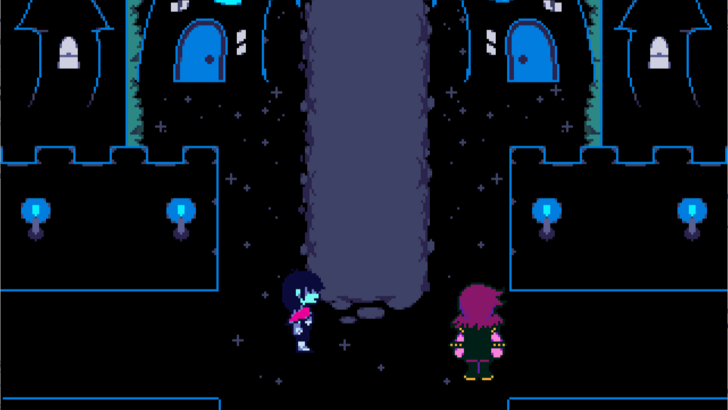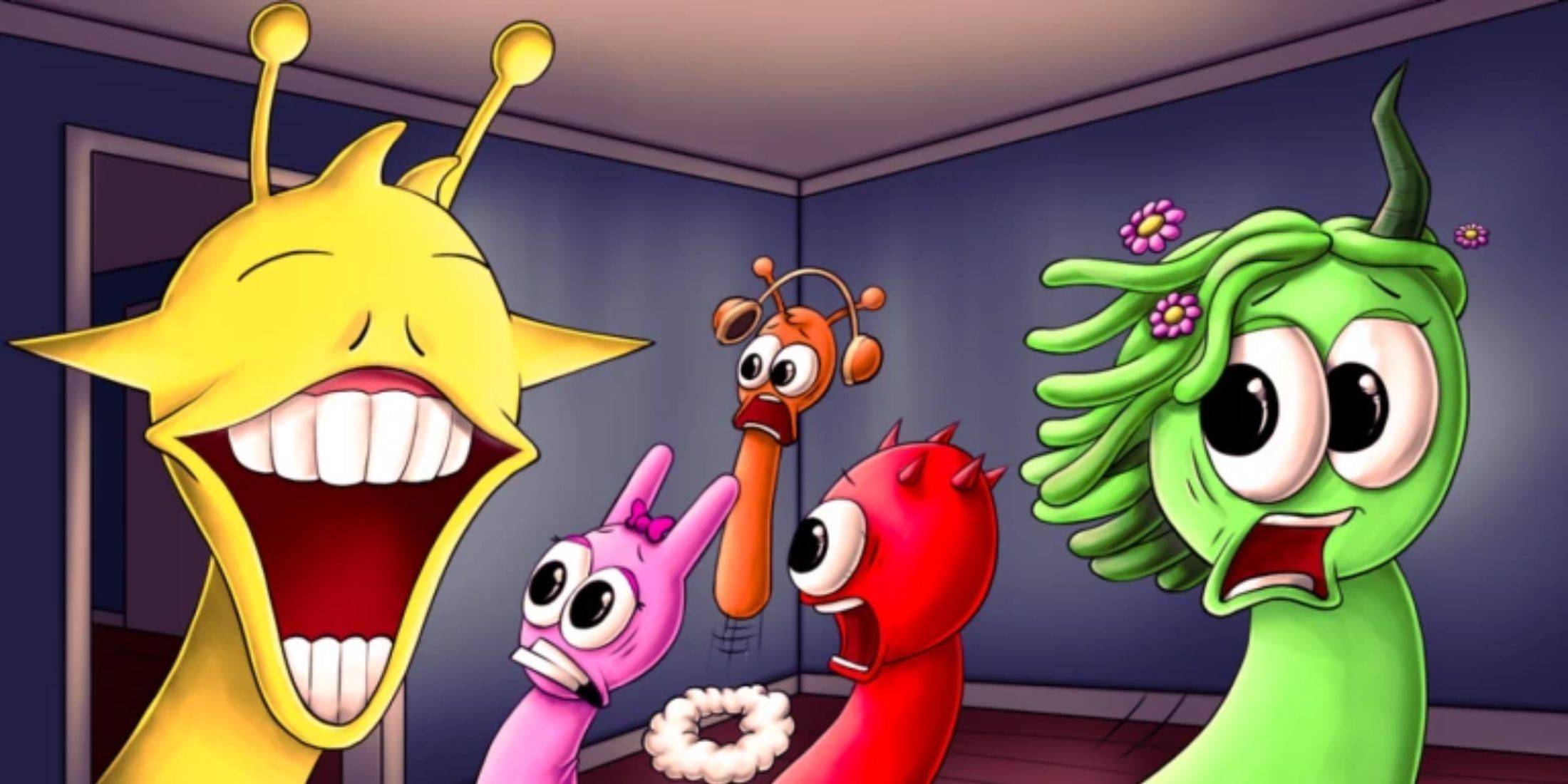In today's gaming world, Capcom is riding high on success, with Monster Hunter Wilds breaking records on Steam and the Resident Evil franchise soaring in popularity thanks to Village and several acclaimed remakes. It's hard to believe that less than a decade ago, Capcom was struggling after a series of disappointing releases that left the company searching for direction. But through a transformative shift in their development strategy and the adoption of a new game engine, Capcom has not only regained its footing but also embarked on a streak of critical and commercial triumphs that have reestablished it as a leader in the gaming industry.
Resident Evil Lost Its Way
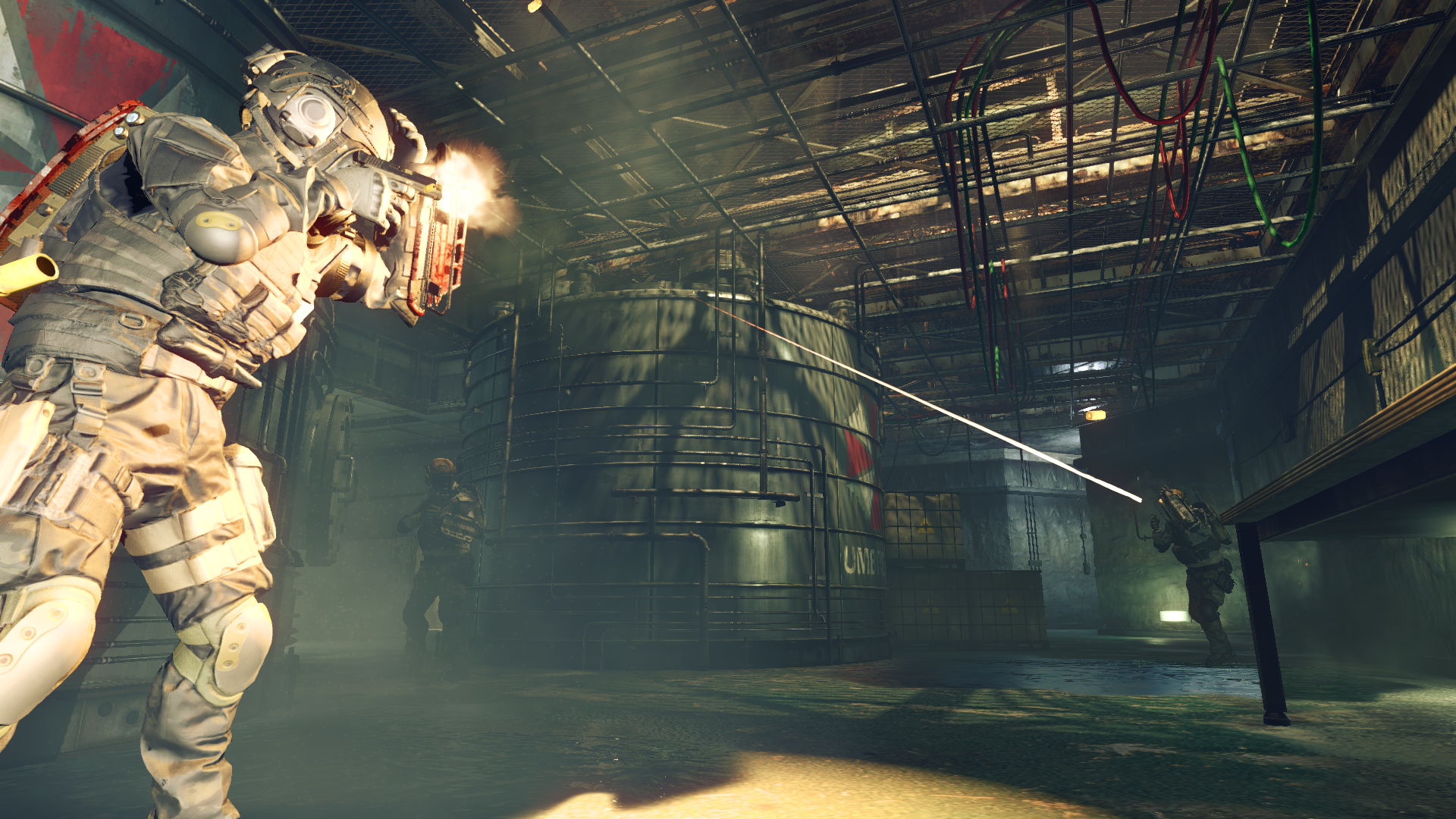
2016 was a challenging year for Capcom. The release of Umbrella Corps, an online co-op shooter, was met with harsh criticism from both reviewers and fans. Similarly, Street Fighter 5 disappointed long-time fans with its lackluster execution, and Dead Rising 4 marked the end of the series' new entries. These setbacks were part of a broader struggle Capcom faced since 2010, as its flagship titles like Resident Evil and Street Fighter failed to recapture their former glory, while other series like Devil May Cry were on hiatus. Even Monster Hunter, despite its strong following in Japan, struggled to break into international markets.
"Many of us started feeling that what the fans and players wanted from the series was getting a little bit separate from what we were making," reflects a Capcom developer. This disconnect marked a stark contrast to Capcom's current standing, where since 2017, the company has consistently delivered hits from its iconic franchises, including Monster Hunter World, Devil May Cry 5, Street Fighter 6, and a series of highly praised remakes and a soft reboot of Resident Evil.
Capcom's turnaround was not just about learning from past mistakes; it required a complete overhaul of their approach, from targeting specific player demographics to leveraging new technology. This transformation was detailed in an exclusive interview with IGN, where four of Capcom's leading creatives shared insights into the company's journey from struggle to success.
Founded in 1979, Capcom initially gained fame with 2D games like Street Fighter and Mega Man before successfully transitioning to 3D with titles such as Resident Evil. The period from 2000 to 2010 saw Capcom modernize its key franchises, culminating in the release of Resident Evil 4, widely regarded as one of the greatest games ever made.
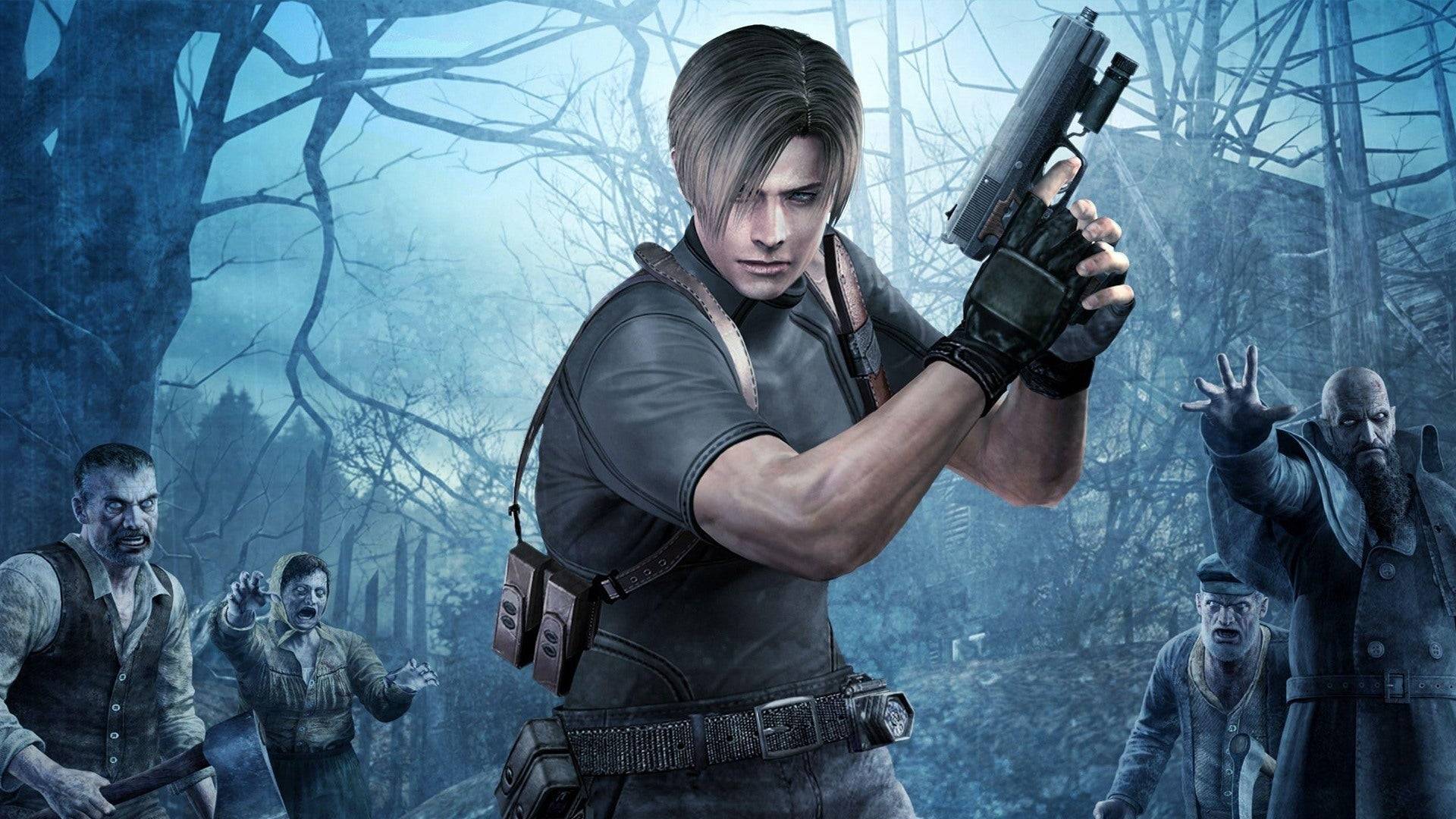
Resident Evil 4, released in 2005, is celebrated for its masterful blend of horror and action. However, subsequent games lost this balance, with Resident Evil 5 and 6 leaning too heavily into action, straying from the series' survival horror roots. This shift led to dissatisfaction among fans and developers alike.
"Overall throughout the Resident Evil series, we set up different goals, challenges, and things we want to try with each game… But this time, many of us started feeling that what the fans and players wanted from the series was getting a little bit separate from what we were making," says Yasuhiro Ampo, director of the Resident Evil 4 remake.
The confusion in direction led to Resident Evil 6, which tried to cater to both action and horror fans but ultimately satisfied neither. This trend of declining quality wasn't limited to Resident Evil; Street Fighter also faced challenges with the poorly received Street Fighter 5, and Devil May Cry saw diminishing returns, leading to the outsourcing of DmC: Devil May Cry to Ninja Theory.
Street Fighter 5, The Lost Cause
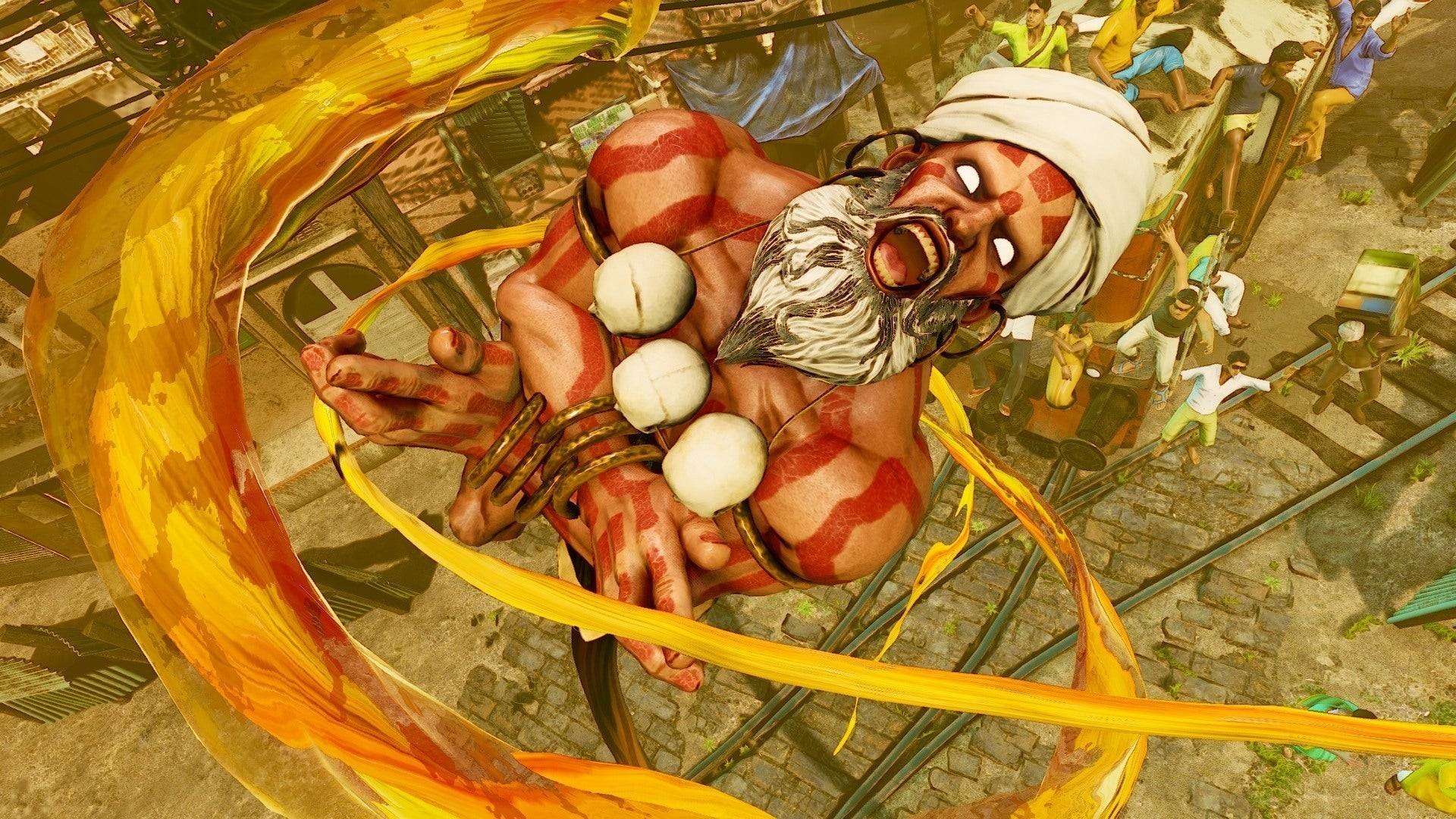
By the mid-2010s, Capcom began implementing strategic changes to turn their fortunes around. The first step was to address the issues with Street Fighter 5. Directors Takayuki Nakayama and producer Shuhei Matsumoto were tasked with fixing the game, which had been released in a barebones state with significant issues.
"There definitely were some challenges within the production of the game, and that was part of the reason why I was brought into the team," Nakayama admits. The constraints they faced meant they could only make incremental improvements, setting the stage for the eventual success of Street Fighter 6.
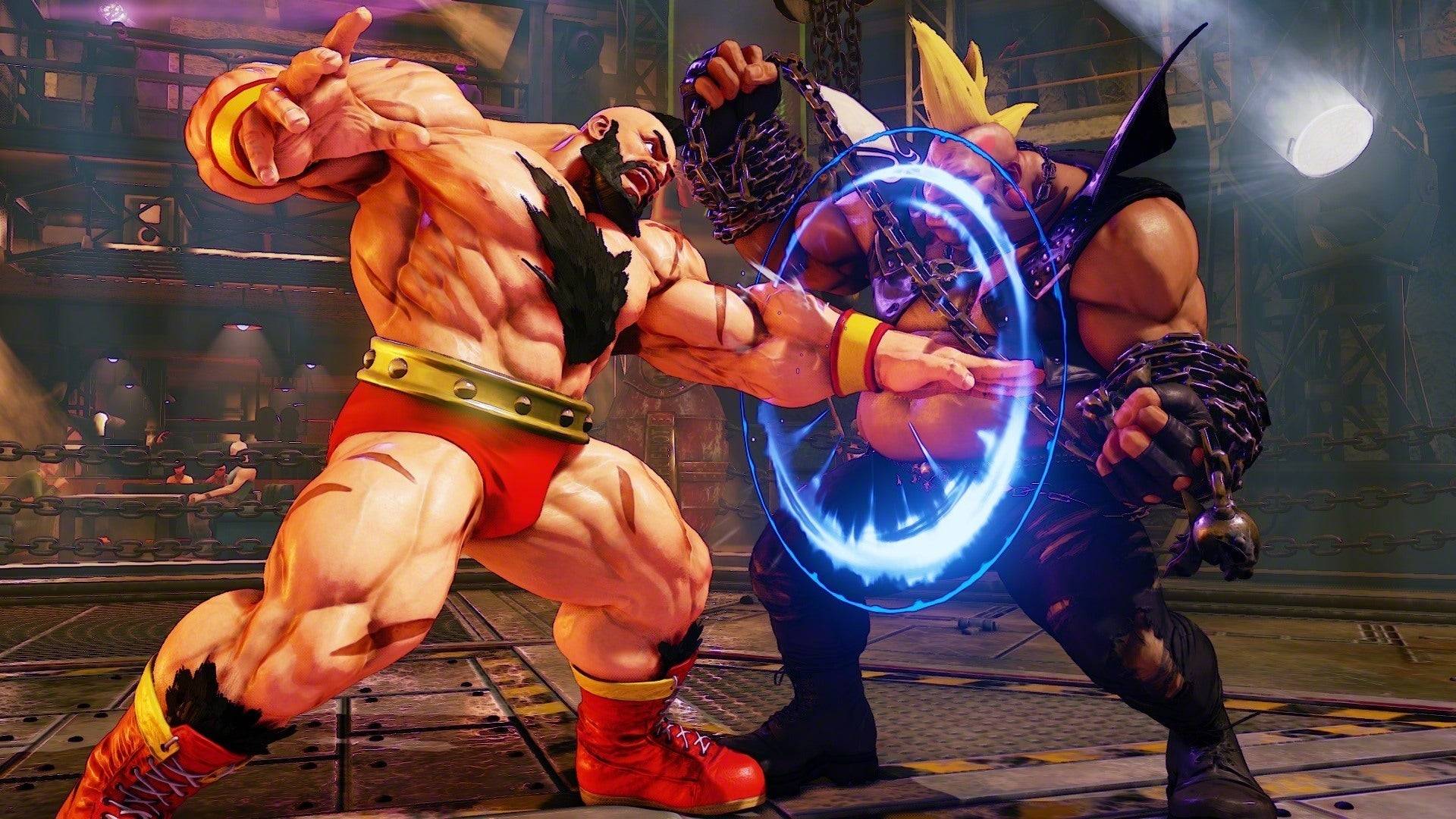
Nakayama and Matsumoto used Street Fighter 5 as a testing ground for new ideas, which were later refined and incorporated into Street Fighter 6. This approach allowed them to learn from their mistakes and ensure the sequel met fans' expectations, ultimately leading to one of the most critically acclaimed entries in the franchise.
Monster Hunter Took Over The World
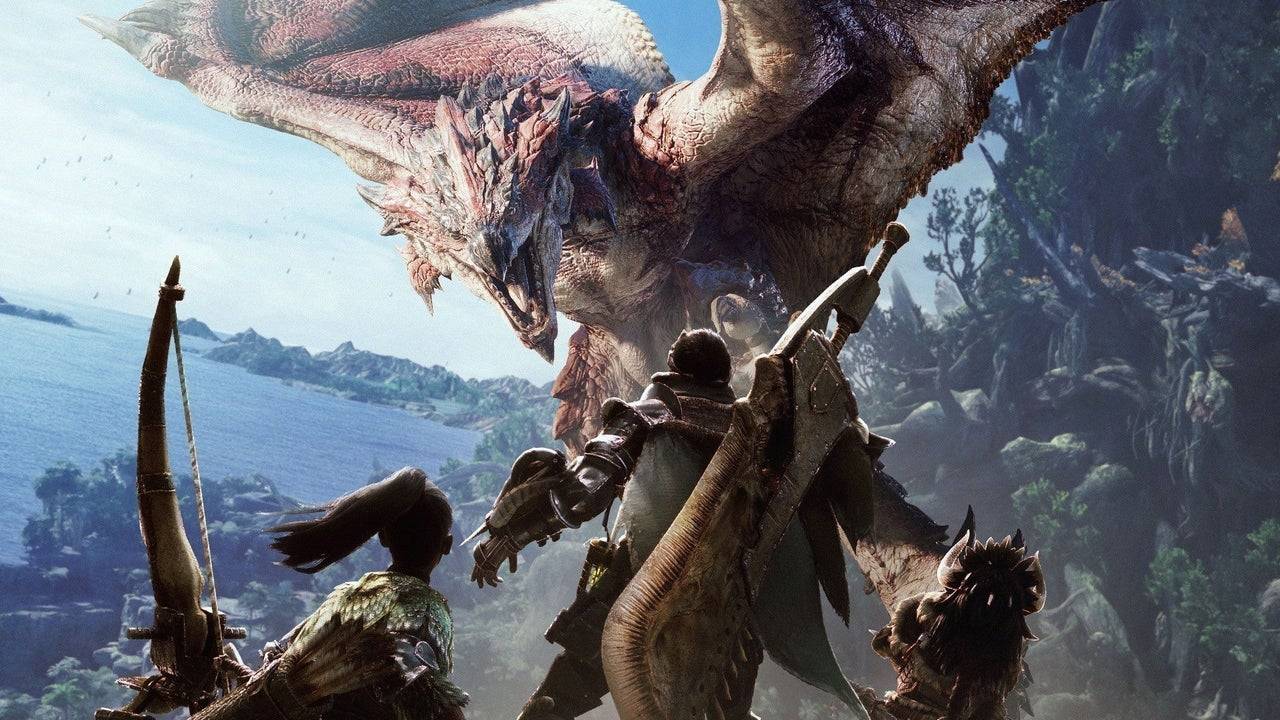
Around the time of Street Fighter 5's launch, Capcom underwent an internal reorganization, introducing the new RE Engine to replace the aging MT Framework. This shift was part of a broader strategy to create games that appealed to a global audience, not just territory-specific fans.
"It was a few factors that came together," says Hideaki Itsuno, a former game director at Capcom known for Devil May Cry. "The change of the engine and also all teams were given a very clear goal at that point to make games that reach the global market. [Games] that are fun for everyone."
Capcom had previously tried to capture Western gaming trends with action-heavy titles like Resident Evil 4 and Lost Planet, but these efforts fell short. The company realized it needed to focus on creating universally appealing games.
"I think that we had that clear goal of just focusing and not holding anything back towards making good games that would reach people from all over the world," Itsuno adds.
The pivotal moment came with the release of Resident Evil 7 in 2017, which marked the beginning of Capcom's resurgence. However, no series better exemplifies Capcom's new global focus than Monster Hunter. Despite its popularity in Japan, the franchise struggled to gain traction internationally until the release of Monster Hunter: World in 2018.
"20 years ago in Japan, having a network connection wasn't as easy, and there weren’t a huge amount of people playing Monster Hunter online," explains Ryozo Tsujimoto, the series' executive producer. "However, handheld consoles made multiplayer gameplay easy without internet access, and I regard it as a great success that we had players experience the game in this way."
Monster Hunter: World was designed to appeal to a global audience, with simultaneous worldwide releases and no region-specific content. The game's success was further bolstered by focus tests conducted globally, which helped refine its systems to meet international standards.
"For World, we conducted focus tests across the world, and some of the feedback and opinions that we got during that process really affected how we designed our game systems and impacted how much success we had globally," Tsujimoto notes.
The result was a massive increase in sales, with Monster Hunter: World and its follow-up, Monster Hunter Rise, both surpassing 20 million copies sold. This success continues with the latest entry, Monster Hunter Wilds, which aims to maintain the series' core while making it more accessible to new players.
Resident Evil 7 Began Turning Things Around
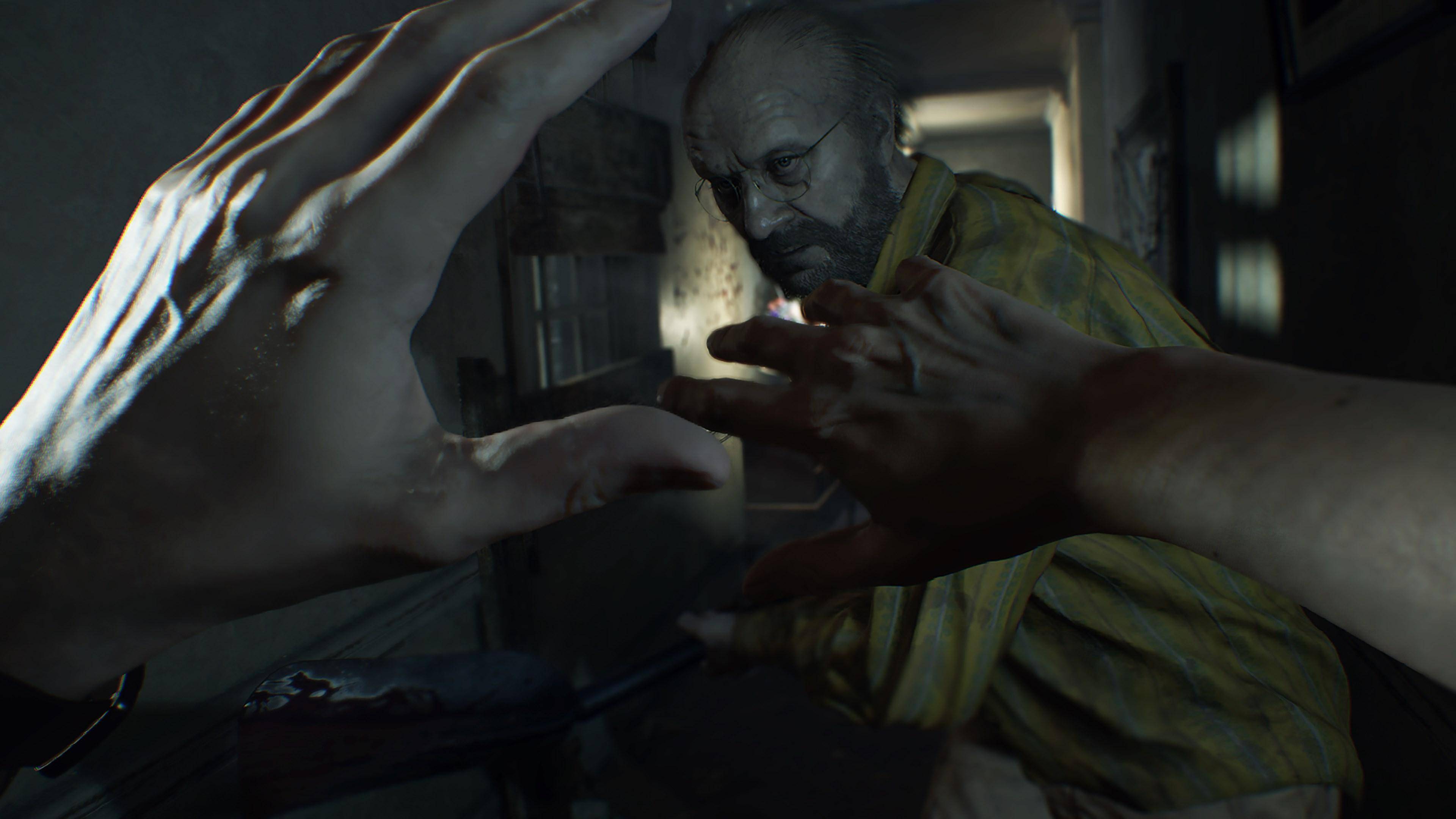
While Monster Hunter found its global footing, Resident Evil faced its own challenges in deciding between action and survival horror. Executive producer Jun Takeuchi made the pivotal decision to return the series to its survival horror roots, starting with Resident Evil 7.
"It was around the time I was working on Resident Evil Revelations 1 and 2. I was trying to test different things, try different approaches," recalls Yasuhiro Ampo, director of the Resident Evil 2 and 4 remakes. "And around this time is when the R&D teams were divided into R&D division one and two. The executive producer of the Resident Evil series, Jun Takeuchi, took command of R&D division one, and he set the core direction that the Resident Evil series needed to go back to its origins, to its roots."
The decision paid off with Resident Evil 7, which embraced a first-person perspective to heighten the horror. The game was a critical and commercial success, praised for its return to the series' roots.
"With Resident Evil 7, the executive producer, Jun Takeuchi, made it clear that we cannot underestimate how critical it is for the series for it to be scary and about survival," Ampo says.
Capcom continued this strategy with remakes of Resident Evil 2 and 3, which maintained the third-person perspective while enhancing the horror elements. The Resident Evil 4 remake, initially met with hesitation due to the original's popularity, also proved successful by fine-tuning the balance between action and horror.
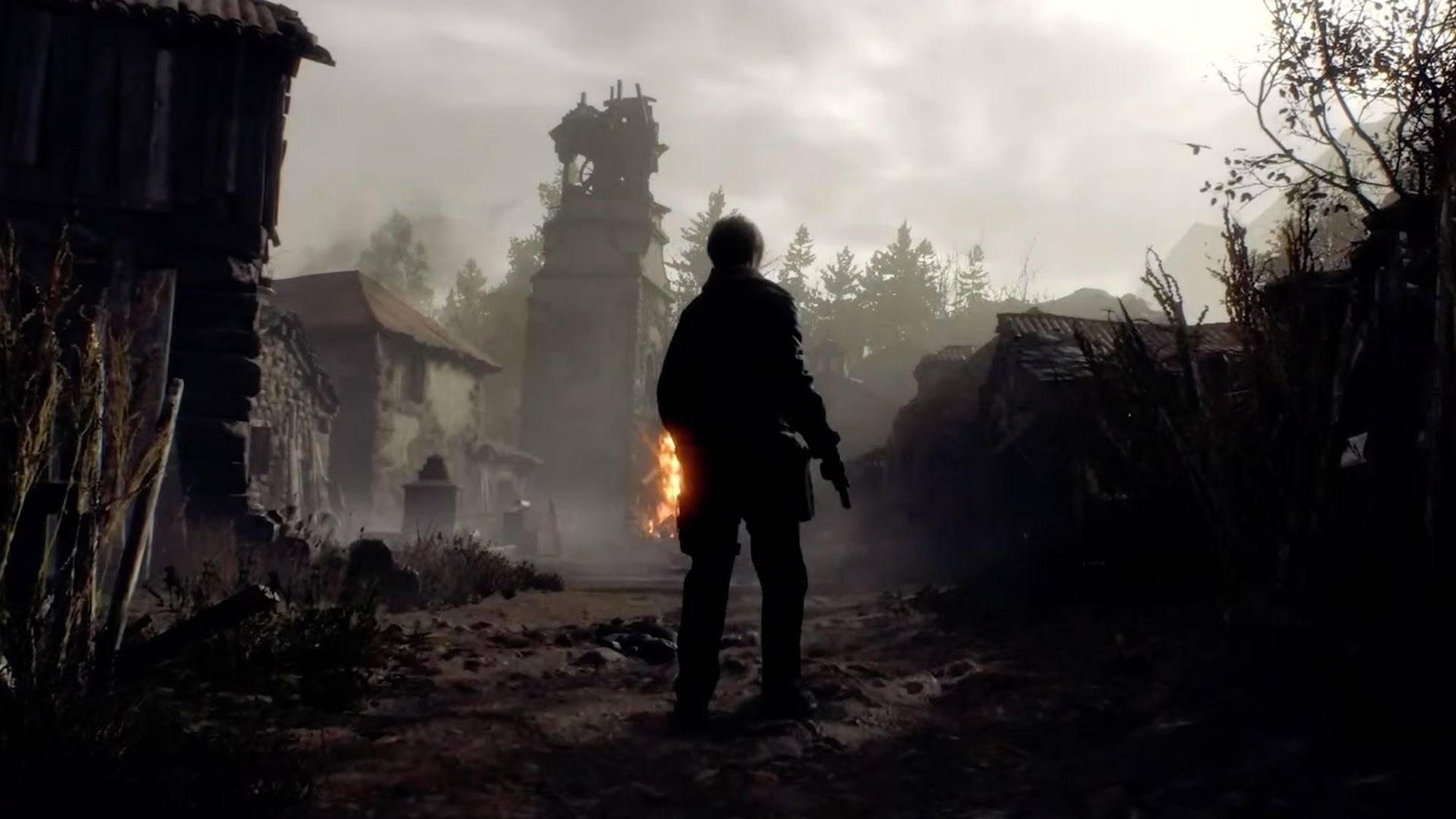
The Reason Behind The Change
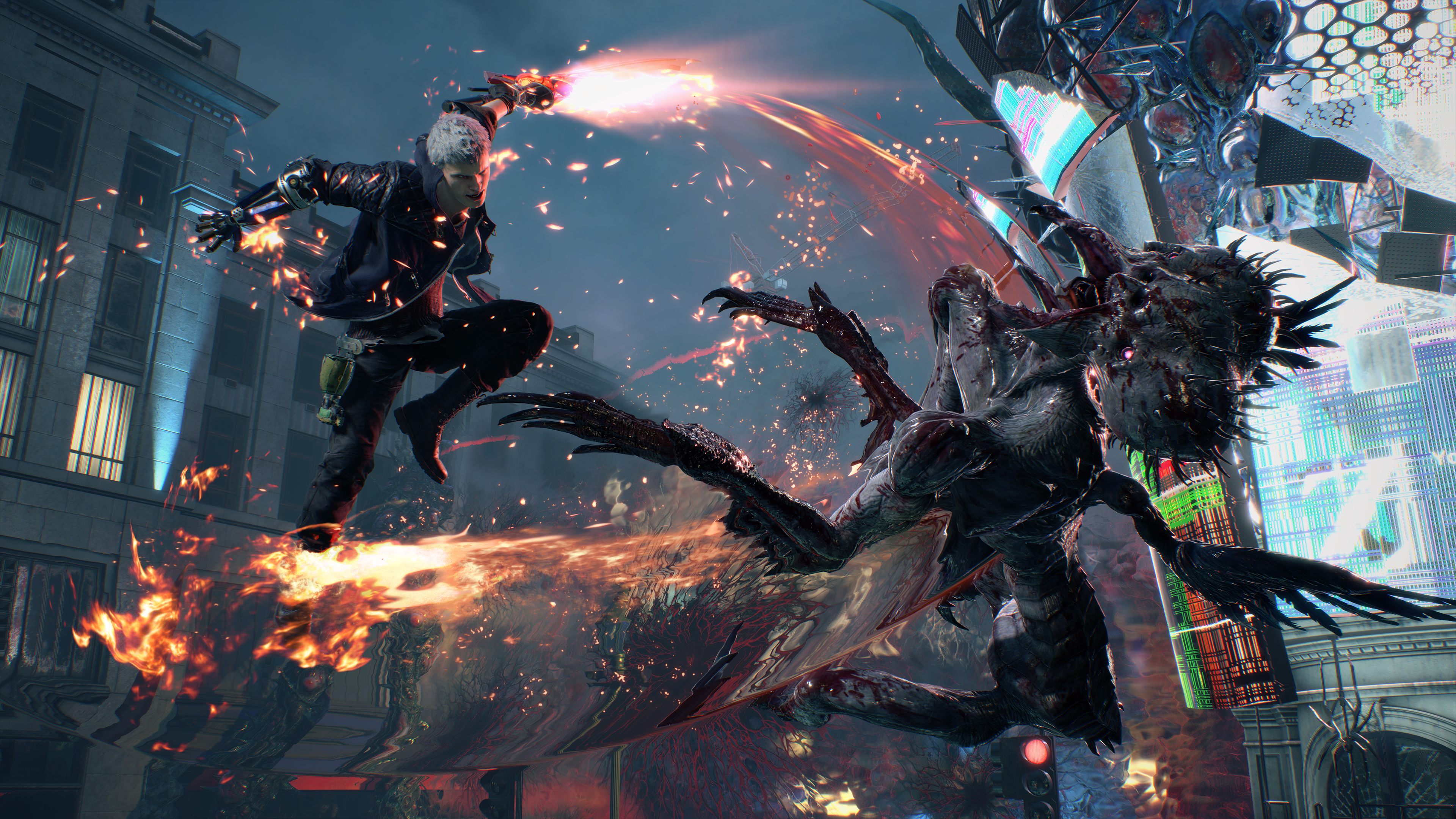
Meanwhile, Hideaki Itsuno, the longtime director of Devil May Cry, returned to the series after a decade with a vision to make the "coolest" action game. This coincided with the launch of Capcom's new RE Engine, which offered improved visual fidelity and development agility.
"I felt like the main trend with action games was to make action games that were very kind," Itsuno says. "Maybe, for me, a little bit too kind to the players, lending a hand to the player too much to my liking."
The RE Engine's capabilities allowed Itsuno to enhance the style and complexity of Devil May Cry 5, resulting in one of the most successful entries in the franchise.
A New Capcom Golden Age
Since 2017, Capcom has released a game of the year contender nearly every year, showcasing a consistency that sets it apart from other major studios. This winning streak is built on a focus on creating globally appealing games using the technologically advanced RE Engine, which supports a variety of genres.
"Capcom is going through a golden era, and, well, now we have to do everything we can so that this lasts one more year, one more year, and every year, one more year," says Monster Hunter's Tsujimoto.
Capcom's strategy of making global, mainstream games has not diluted its core identity but rather expanded its audience while maintaining the unique essence of its franchises. As other developers struggle to find their footing, Capcom's recent success story is a testament to the power of staying true to one's roots while embracing innovation.
"It’s a very exciting time to be at Capcom right now," says Nakayama of Street Fighter. "A lot of us are able to get excited about what we’re working on and are able to focus on things that we think are fun. So, yes, I guess a golden age may be one interpretation of that."





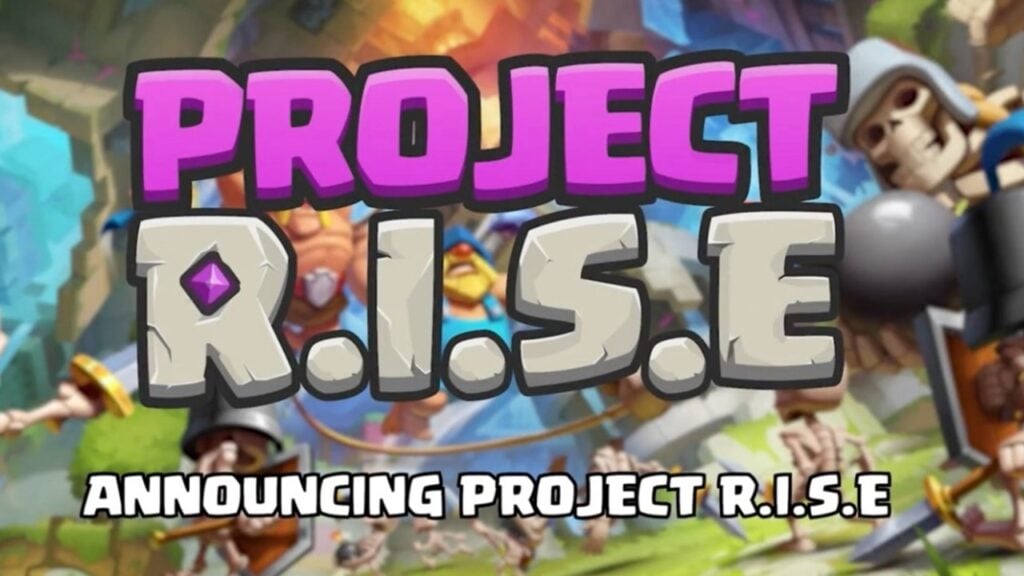

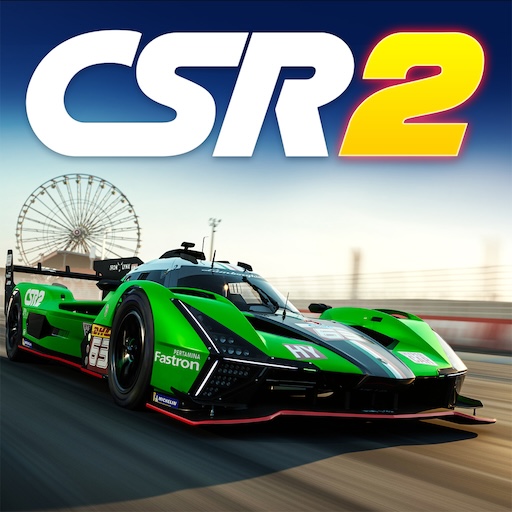
![Taffy Tales [v1.07.3a]](https://imgs.xfsxw.com/uploads/32/1719554710667e529623764.jpg)






